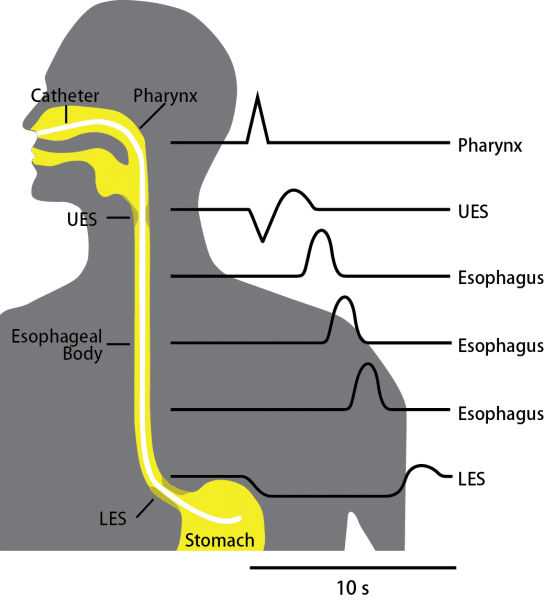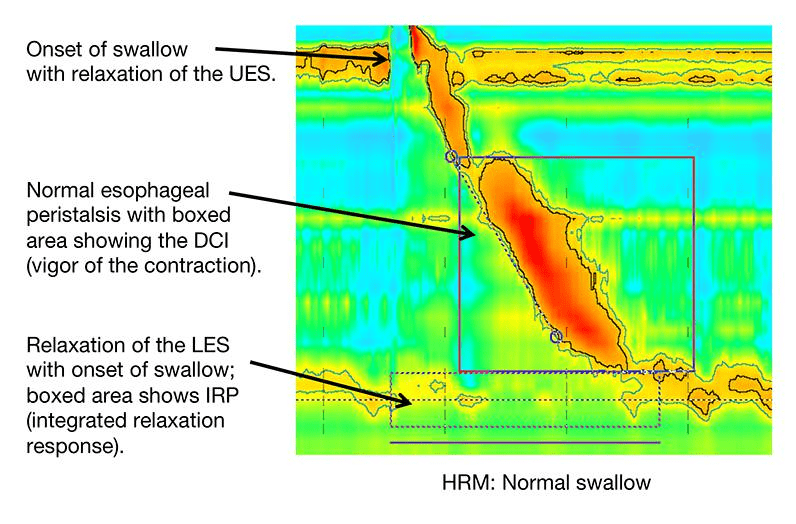GI Motility Study (Esophageal Manometry)
Doctors conduct GI motility study or esophageal manometry tests. To assess the proper functioning of the esophagus. The esophagus – a tube connecting the throat with the stomach. Additionally, serves as a pathway for food to travel into the digestive system. The esophageal manometry test checks to see if the esophagus is relaxing and contracting properly. Disruption of this process can cause difficulty in swallowing and may also result in GERD.
Esophageal manometry measures the strength and patterns of the muscle contractions in the esophagus. Subsequently, helps determine whether the lower esophageal sphincter or LES opens and closes properly. The LES is a valve that normally remains closed to keep food and stomach acid inside the stomach. Furthermore, prevents it from rising upward into the esophagus. If this value is not functioning properly it causes gastroesophageal reflux disease (GERD).
Who is a Good Candidate for GI Motility Study?
Patients who are suffering from chronic heartburn, acid reflux, or GERD. Additionally, those experiencing trouble with swallowing would be good candidates for gastric motility testing.
For instance, individuals may feel like their food stuck in their chest. As well as burning pains in their chest after eating.
Nonetheless, try our online GERD quiz to determine at which stage are you.
How do Doctors Perform GI Motility Study?
Doctors perform a GI motility study by guiding a tube through the patient’s nose and down their throat. Initially, they apply a numbing cream inside the nose to minimize any discomfort. They perform the first part of the procedure while the patient is sitting upright. Normally, it takes about 15 seconds. Initially, they insert a very skinny, flexible catheter into the patient’s nose. Then guide it down the esophagus and into the stomach. Meanwhile, the patient swallows small sips of water.
Once the doctor positions the tube properly, they connect it to a computer. While the doctor slowly pulls the catheter back into your esophagus. Later he will instruct patients to swallow. Moreover, the computer will record the pressure levels of the swallowing in different sections of the esophagus. Finally, after testing all sections, the doctor removes the catheter.

Procedure Duration
The entire procedure takes about 25 to 45 minutes to complete.
Expected Results
Normally, it takes just a few days to receive the results from a GI Motility study. Lastly, after analyzing the test results on the computer, the physician will set up a follow-up appointment. During this appointment, they will discuss the results and determine a plan of care.
Associated Rosk
Generally, a GI motility study is very safe. However, it may include minor side effects such as a mild sore throat, nosebleed, or sinus issues.
How much does the Procedure Cost?
The average cost of an esophageal manometry procedure in the United States ranges from $768 to $1,493. The cost of the procedure will vary by patient and circumstance. Visit our Pricing Page to learn more.
If you are experiencing chronic heartburn or ongoing acid reflux and are seeking relief from these painful symptoms. Call us or schedule a teleconsultation.








